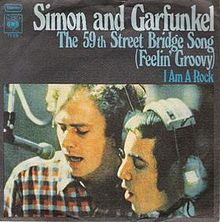 Savoring is the ability to “make the moment last,” to stretch the satisfaction from some experience, event, or feeling. In scientific speak, savoring is a form of emotional regulation used to prolong and enhance positive emotional experiences. People who learn to savor life are significantly happier. Interestingly, repeated scientific studies show wealth has a negative impact on the ability to savor (see footnote).
Savoring is the ability to “make the moment last,” to stretch the satisfaction from some experience, event, or feeling. In scientific speak, savoring is a form of emotional regulation used to prolong and enhance positive emotional experiences. People who learn to savor life are significantly happier. Interestingly, repeated scientific studies show wealth has a negative impact on the ability to savor (see footnote).
Four Proven Ways to Increase Your Ability to Savor Life: (Quoidbach, Tugade & Fredrickson; 2007)
#1 Anticipate: Look forward to things, see yourself enjoying them in your mind, mark the big ones on your calendar, relish the little ones as they surface. The smallest moments, strung together by anticipation and memory, can make the most beautiful of masterpieces. The first cup of coffee in the morning, a quiet moment in the evening, greeting co-workers, lunch with friends. All these can be anticipated, savored, noticed, valued, cherished, remembered, and thus enhanced.
#2 Stay Present, Appreciate the Moment: As the moments arrive, stay in them. Feel the feeling, notice the details. Appreciate. Soak it in, bathe in the finest glows. Smile.
#3 Reminisce, cherish the memories: Let the joys of the experience, the highlights, the best of the best linger in the backwaters of your mind. Let them bubble up every now and then and bring a smile to your lips. Count your blessings, let your attitude of gratitude spill over.
# 4. Share: Tell others about it, bring others along, involve the people of your life in your life. Joy shared is doubled, troubles shared are halved.
Closing quote:
Feeling Groovy: Simon And Garfunkel, Feeling Groovy (59th St. Bridge Song)
“Slow down, you move too fast,
you’ve got to make the moment last /
Just kickin’ down the cobble-stones, l
lookin’ for fun and feelin’ groovy.
Feeling groovy
Hello lamp-post, what cha knowing,
I’ve come to watch your flowers growin’
Ain’t cha got no rhymes for me,
do-it-do-do, feelin’ groovy
Feeling groovy
I’ve got no deeds to do, no promises to keep
I’m dappled and drowsy and ready to sleep
Let the morning time drop all its petals on me
Life I love you, all is groovy”
Footnote:
Psychological Science 21(6) 759 –763
Can experiencing the best that life has to offer undermine one’s ability to savor everyday joys? Income appears to have a surprisingly modest impact on happiness (e.g., Aknin, Norton, & Dunn, 2009), especially in wealthy societies (Diener & Oishi, 2000; Veenhoven, 1991). Although a number of explanations have been proposed for the weakness of the money-happiness relationship (e.g., Dunn, Aknin, & Norton, 2008), one of the most intriguing—but untested—explanations lies in what Gilbert (2006) termed the experience-stretching hypothesis According to this perspective, experiencing the best things in life—such as surfing Oahu’s famous North Shore or dining at Manhattan’s four-star restaurant Daniel—may actually mitigate the delight one experiences in response to the more mundane joys of life, such as sunny days, cold beers, and chocolate bars (Gilbert, 2006; Parducci, 1995).
Scarcity may increase savoring. Theorists describe savoring as a form of emotion regulation used to prolong and enhance positive emotional experiences (Bryant, 1989, 2003). Researchers have identified four common strategies—that can be employed Corresponding Author: Jordi Quoidbach, Personality and Individual Differences Unit, University of Liège, 5 Blvd. du Rectorat, 4000 Liège, Belgium. Money Giveth, Money Taketh Away: The Dual Effect of Wealth on Happiness Jordi Quoidbach 1 , Elizabeth W. Dunn 2 , K.V. Petrides 3, and Moïra Mikolajczak 4,5 1 University of Liège, 2 University of British Columbia, 3 University College London, 4 Université Catholique de Louvain,and 5 Belgian National Fund for Scientific Research, Brussels, Belgium


0 Comments